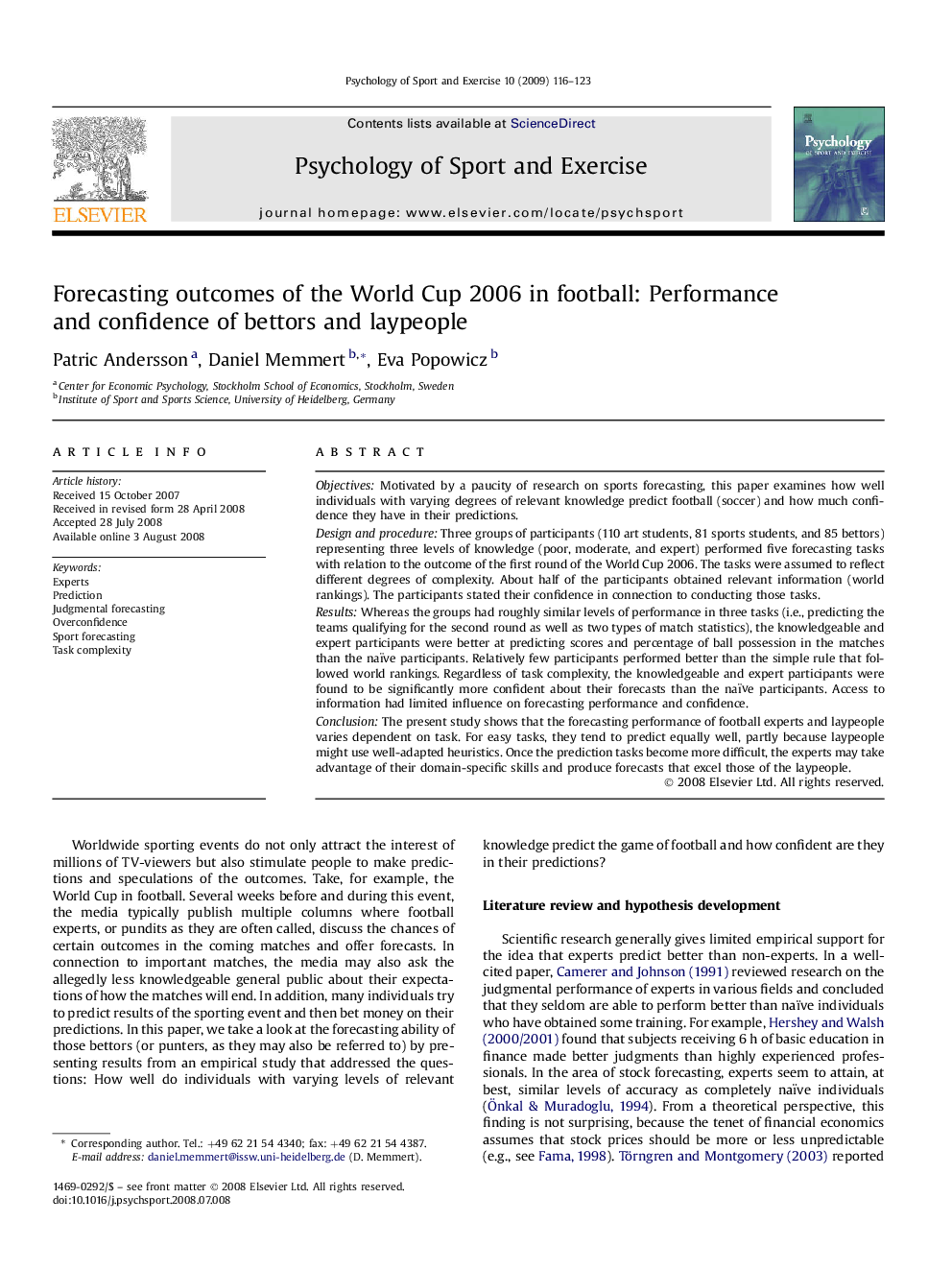| Article ID | Journal | Published Year | Pages | File Type |
|---|---|---|---|---|
| 894825 | Psychology of Sport and Exercise | 2009 | 8 Pages |
ObjectivesMotivated by a paucity of research on sports forecasting, this paper examines how well individuals with varying degrees of relevant knowledge predict football (soccer) and how much confidence they have in their predictions.Design and procedureThree groups of participants (110 art students, 81 sports students, and 85 bettors) representing three levels of knowledge (poor, moderate, and expert) performed five forecasting tasks with relation to the outcome of the first round of the World Cup 2006. The tasks were assumed to reflect different degrees of complexity. About half of the participants obtained relevant information (world rankings). The participants stated their confidence in connection to conducting those tasks.ResultsWhereas the groups had roughly similar levels of performance in three tasks (i.e., predicting the teams qualifying for the second round as well as two types of match statistics), the knowledgeable and expert participants were better at predicting scores and percentage of ball possession in the matches than the naïve participants. Relatively few participants performed better than the simple rule that followed world rankings. Regardless of task complexity, the knowledgeable and expert participants were found to be significantly more confident about their forecasts than the naïve participants. Access to information had limited influence on forecasting performance and confidence.ConclusionThe present study shows that the forecasting performance of football experts and laypeople varies dependent on task. For easy tasks, they tend to predict equally well, partly because laypeople might use well-adapted heuristics. Once the prediction tasks become more difficult, the experts may take advantage of their domain-specific skills and produce forecasts that excel those of the laypeople.
